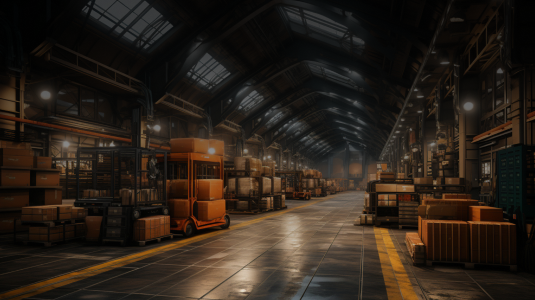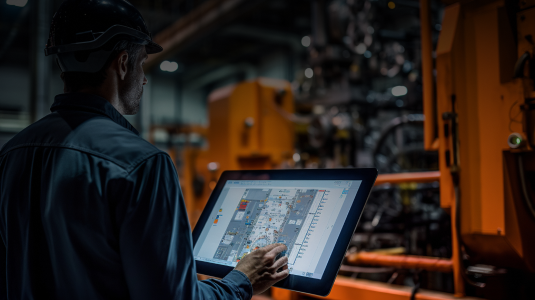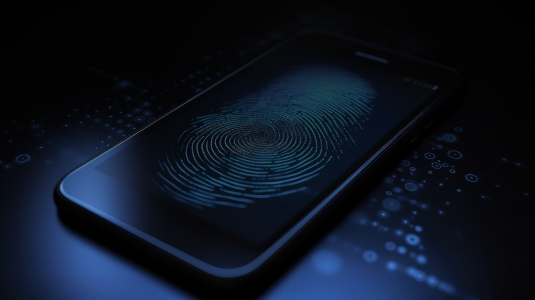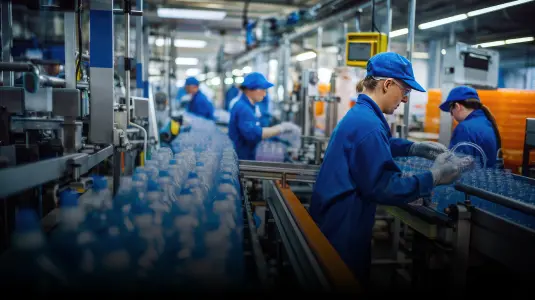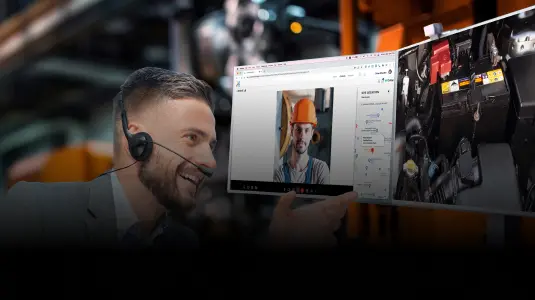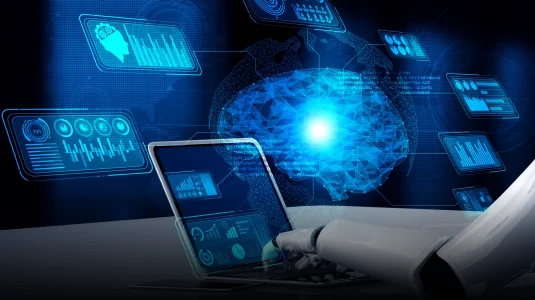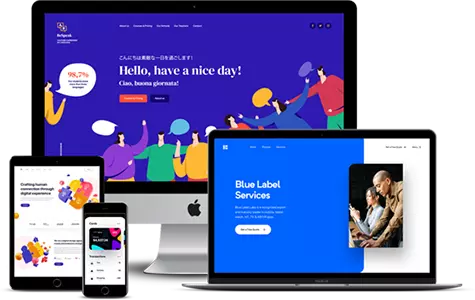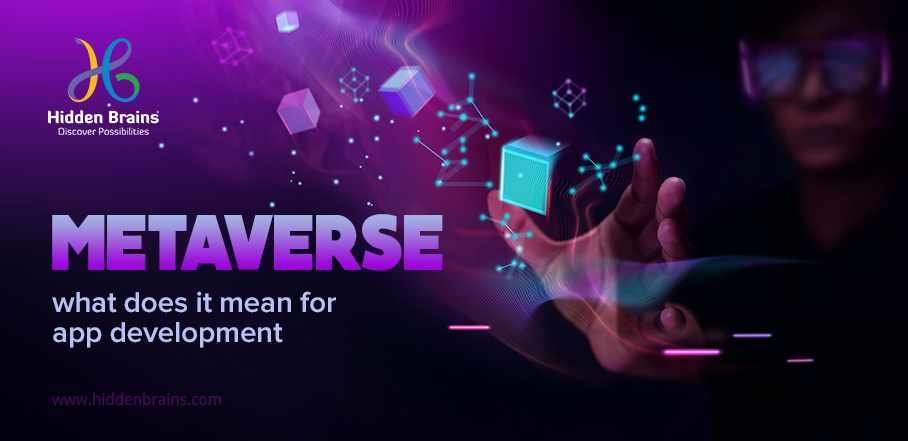Table of Contents
The future is already here. We are on the threshold of a new decade of digital transformation, changing how businesses interact with their customers and how products and offerings are made.
Welcome to the “Metaverse” – a parallel universe enabling people to interact with one another in an immersive digital world.
What is Metaverse?
Metaverse is better to be called the Internet on steroids, where just reading text and watching videos are obsolete. Technologies such as 3D and artificial intelligence let users interact in virtual “universes.” It is an evolving, immersive Internet where we can feel, touch, and interact with people, places, and things in realistic ways, wherein virtual and augmented reality are seamlessly intertwined.
However, Metaverse Development is impossible without including the technology, enabling devices, connecting networks, and delivering content. Its infrastructure consists of multiple technical aspects such as semiconductors, cloud servers, and storage, supported further by 5G and Wi-Fi transmission.
It is no secret that technology has drastically changed the way we communicate. These changes have been largely for the better, making it easier than ever to connect with others. However, there are some drawbacks to this increased connectivity. One of these is the way it can lead to a more polarized society.
In the near future, it is likely that more and more businesses will start to explore the possibility of implementing some sort of AR or VR technology into their workflows. Tech giants like Meta and Microsoft have already ventured quite far in this direction. These technologies have a lot of potential for businesses in a number of different industries. For example, retailers could use AR or VR to give customers a realistic preview of what a piece of furniture would look like in their home.
Metaverse- NextBig for app world
The utility of the metaverse technology has been proposed to be multifaceted, including work possibilities, live entertainment, art shows, investing, education, socializing, and gaming, to name a few. In recent years, there has been a surge in virtual reality and augmented reality applications. With the growing popularity of these platforms, businesses and individuals are finding new and innovative ways to use the metaverse technology. Businesses can use it to promote their products and services, while individuals can use it to connect with friends and family.
Metaverse blurs the thin-line difference between reality and virtual via Mobile App Development, further accelerated through novel technologies, like Web 3.0, blockchains, non-fungible tokens (NFTs), 5G, digital twins, artificial intelligence, and XR devices, just to name a few.
Tech stack empowered by Metaverse Technology
AR and VR
As technology develops, new ways of communication and interaction are made possible. Augmented reality (AR) and virtual reality (VR) technologies are two such examples that are beginning to revolutionize the way people interact with the world and with each other. AR and VR provide an immersive, engaging and interactive experience that is unlike anything that has come before. These technologies have the potential to change the way we live, work and play.
One such way is through the use of augmented reality (AR) and virtual reality (VR). These technologies have the potential to create a metaverse, which is a shared, simulated environment that can be accessed by people from around the world. By using AR and VR, the metaverse experience can be expanded to include physical simulations. This would allow people to interact with each other in a more realistic way, as well as providing a more immersive experience.
Web 3.0
Web 3.0, the next iteration of the Internet as we know it, is a decentralized Internet that is built on decentralized blockchains. It is a metaverse that is borderless, open, and democratic. It is a platform that empowers users to build and maintain their own digital spaces and transact with one another using tokens. This new paradigm shift will fundamentally alter how we interact with and use the Internet today and is expected to have widespread impacts on our economy, society, and culture.
Artificial Intelligence
Artificial intelligence can further provide insights regarding the scalability and suitable transformation of features in the metaverse. While this technology has been introduced in a rudimentary form in the past, its potential for growth in the metaverse is immense. By analyzing data from both the real and digital worlds, AI can provide valuable insights that would be difficult for a human to discern.
3D Reconstruction
In the context of the metaverse, three-dimensional (3D) reconstruction can be important for achieving a realistic graphical representation of physical space. 3D reconstruction is a process of capturing the shape and appearance of real-world objects and scenes. This can be done using a range of methods, including photogrammetry, laser scanning, and structured light scanning.
Developers can implement metaverse with digital assets in the form of 3D and 4K HD imagery and further generate a virtual replica. This can be done by uploading the files to a server or by rendering them on the user’s device. This technology has the potential to create an ever-growing repository of virtual objects for users to explore.
IoT
The internet of things can have an impact on the metaverse for data management and optimization, as well as the creation of simulations. For example, data collected by sensors can be used to improve the accuracy of simulations. In addition, simulations can be used to test the effects of different changes on the real world, before those changes are implemented. This could potentially lead to a more efficient and effective use of resources.
Future lies in Metaverse
The Metaverse market may reach $783.3 billion in 2024 vs. $478.7 billion in 2020, representing a compound annual growth rate of 13.1%- Bloomberg.com.
The Metaverse has the power to connect the world as never before, giving us the ability to share immersive experiences regardless of geographic location or distance and providing the ability to learn from each other irrespective of where we live throughout the world.
Whether gaming, entertainment, work collaboration, social media, virtual worlds, education, or fitness, there will be a massive increase in use cases.
Enterprises are viewing Metaverse as no longer a vision, with pre-existing use cases such as the ability to go to a concert and shows with other real people inside a video game, the ability to walk a factory floor from home, or to join a meeting remotely but be in the room remotely to collaborate with other workers. It is believed that Metaverse would capture the rhythm to stretch us beyond the barriers and limitations of the physical world, which was an obstacle during Covid time.
Today, the Metaverse is being used to treat anxiety disorders and provide individuals suffering from such disorders with an environment where they can control their surroundings, reducing their anxiety.
Further, leveraging the Mobile Applications powered by Metaverse for educational purposes can potentially change the way we learn, teach, and engage in lifelong learning. It can also transform how young people take in information, adapt to situations, and solve problems.
Calling Metaverse a digital ambition inspired by nature wouldn’t be wrong. It reduces carbon emissions by reducing travel, significantly impacting fuel consumption. We would no longer have to leave our homes to travel, socialize, or work, leading to substantial economic and environmental savings.
The Metaverse has the potential to change attendees’ experience the way concerts. Concerts would no longer have any limitations and would be more accessible than ever before, as they could be experienced anywhere.
Network requirements for Meta
Broadband Internet has come a long way. It is no more sufficed to mere connectivity but has evolved to be a vibrant ecosystem consisting of vendors, service providers, device OEMs, telecom operators, and whatnot.
When it comes to seamless connectivity, the current Wi-Fi generations are offering the required rate but bear congestion pain. On the other hand, Metaverse calls for highly reliable, high throughput, and bounded latency networks. This need is addressed by 5G and upcoming Wi-Fi trends, which would offer rate, range, reliability, latency, and so much more. It will continue to power advanced consumer and enterprise metaverse use-cases.
Our View
At Hidden Brains, the Metaverse we envision is a shared, immersive environment powered by Mobile App Development Services, where we can share experiences, information, and ideas without barriers or limits. This environment encourages the free exchange of ideas and information without borders or restrictions.
Whether it is Nikeland on Roblox or Gucci Garden, Metaverse is just about creating the next version of the Internet, driving new lines of business, new ways of working, and new means of interaction between companies and people.
Our current access solution portfolio is an important stepping stone towards futuristic demand made from the Metaverse ecosystem. With our coherent R&D roadmap, we are putting our best foot forward to include the latest Wi-Fi technologies in our products and introduce more as we progress.
Closing
We want to close this post with the thought that Metaverse is an enormous undertaking and requires a global effort and ecosystem-wide connectivity collaboration. However, as our world is venturing into virgin territory like the Metaverse, it’s almost impossible to predict what more can be explored further.
As a Mobile App Development Company, we listen to our users, take their suggestions, and work to iterate on them. We support and will continue to foster an open and inclusive app ecosystem to embrace Metaverse as a widespread reality.
We aspire to make it easier for all of our users across global geographies to savor the connectivity with apps that match their requirements.
We understand that delivering a quality product is important to your business, and we will ensure that your world-class app meets all of your needs. Our team has years of experience in the field, and we will ensure that your product is delivered on time and to your specifications.
Get in touch with us and Hire Mobile App Developers to bring a difference to your business.
